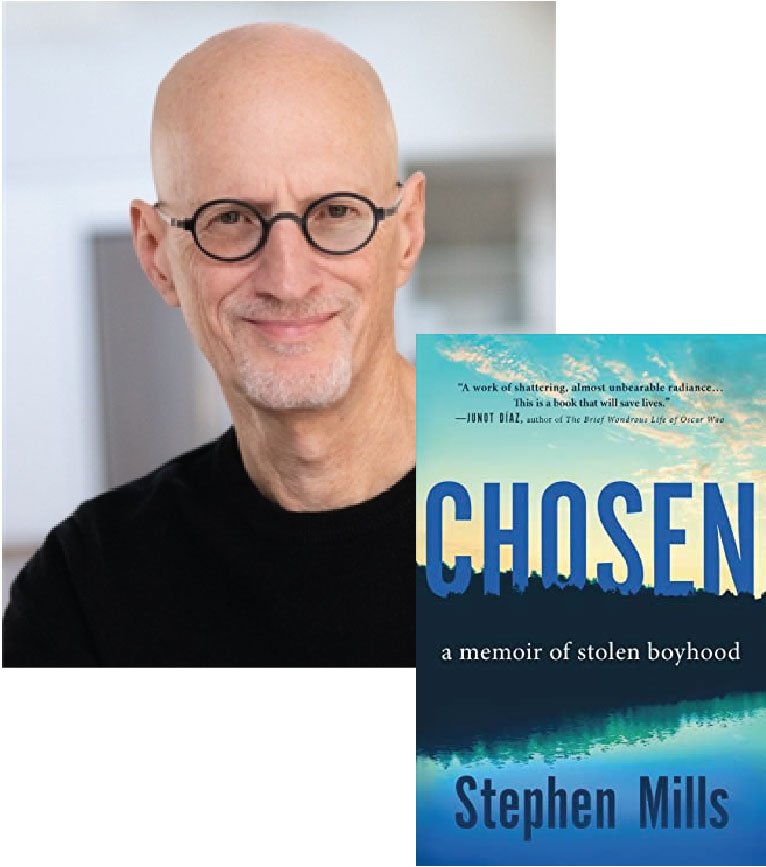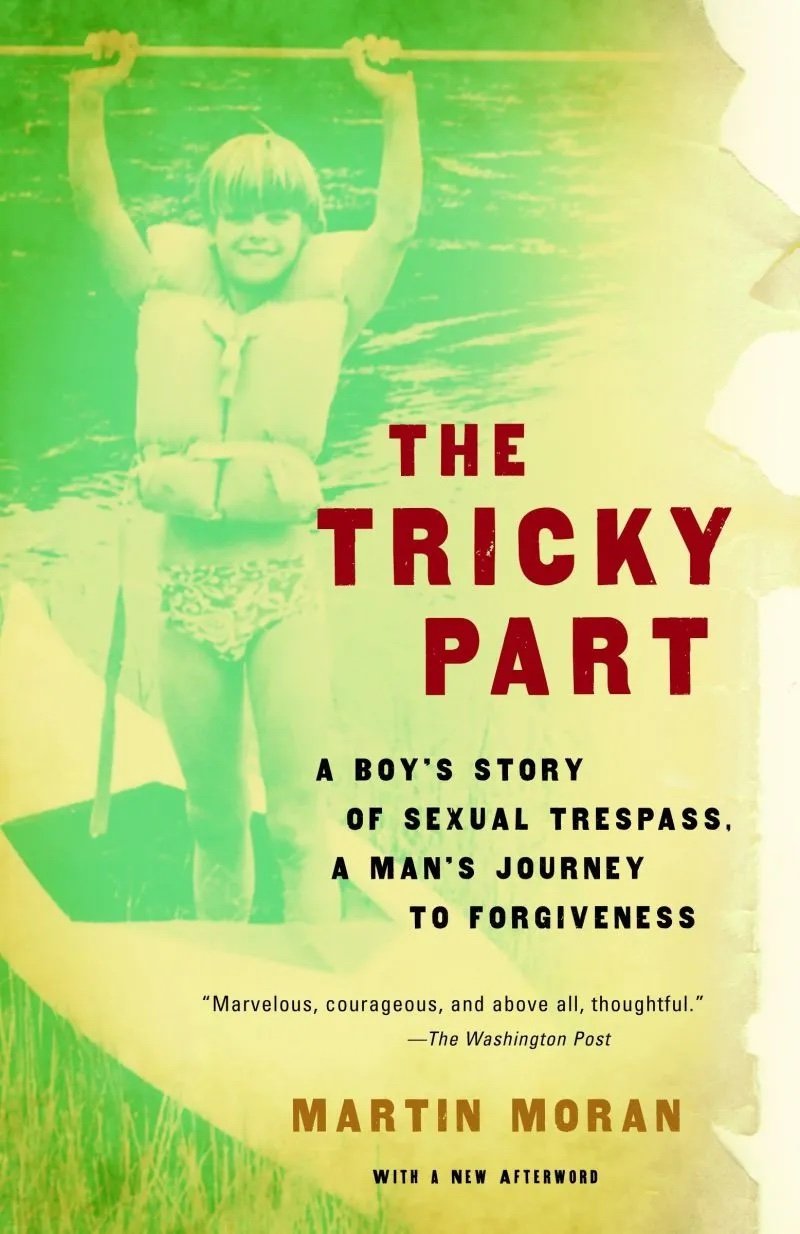Breaking the stigma of sexual crimes perpetrated against men and boys
John Doe No More
You are not alone and it is not your fault. 1 in 6 boys will be the victim of sexual abuse by the time they are 18 years old.
Male Survivors Share Their Journey
Brad’s Story
My name is Brad, and I am an incest survivor. My perpetrator was a trusted family member. My earliest memory of being touched is when my perpetrator was teaching me how to read. He was touching me in a manner that was arousing. It is difficult today to think about that happening as such a young kid. He used my innocence and my body against me. When I questioned what he was doing, he stopped and said it was an accident.
Over the next couple of years, he continued to touch me in the same manner my mother did, which was safe and 'clean'. I am not sure when he touched me sexually again, however, I do remember being in 1st grade and him performing oral sex on me. By then, he had made his way between me and my family spiritually and emotionally. There did not seem to be any reason to tell my mother what he was doing. I can remember it feeling good and him assuring me that it was OK. That pattern continued until I was a senior in high school.
When I was in my early teens, I started to think something was wrong. He switched tactics and began to make it seem like it was my responsibility and that I was the one who was responsible for what was going on. To this day, I can hear the statement he made, "If anyone ever finds out about this, WE are going to be in big trouble.” It seems strange to say now, but normal is normal and that was my normal. As I got older, I had a wide range of emotions: fear, shame, guilt, and anger. By then, I knew it was happening to other boys and it sickens me to say I was jealous. By the summer of 8th grade, I started using alcohol and marijuana on a regular basis. I thought I was having fun, but as I look back, I know I was just making myself numb.
As previously mentioned, he stopped when I was a senior in high school and he moved on to the next group of young boys. I was grateful that it was "over". I spent the next 12 years in denial. I did not know what I was doing but I stayed numb by using drugs and alcohol, working too much, reading too much, driving too fast, listening to loud music and anything else I could think of. I was unable to trust anybody. I was not available to my family spiritually or emotionally. When I was 30½ years old, through a series of events, God saw fit to have me get clean and start facing what happened to me. I was blessed with many opportunities to get help and channel all the energy and feelings I was having in a positive direction. My family rallied around me. I was able, with a tremendous amount of support, to confront my perpetrator.
Today, I am 63 years old. I am sober. I am a family member. I am a partner in a healthy relationship with a woman. I am willing and able to take care of myself spiritually, physically and emotionally. I am grateful for the life I have, and I hope by sharing my story, other men can find their way through this most difficult chapter in their lives.
Articles
“It became abundantly clear how much we all had in common and how oddly normal my weird and hidden past suddenly seemed.”
Quote above is an excerpt from ‘Voices Heard’ Winter Issue 2021
Breaking the silence around the childhood sexual abuse of Black men
Tyler Perry
“It was rape, I didn’t know what was going on or the far-reaching effects of it.”
— Tyler Perry
“In many homes and social circles, the topic is still avoided — it’s taboo,” says Robin D. Stone, a licensed mental health counselor in New York City and a survivor of childhood sexual abuse. “In some cases, men haven’t shared with anyone that they’ve had this experience, that they have this history.”
Podcasts
‘For the People’
John Voket, producer of ‘For the People’, speaks with Donna Palomba and Troy Schinkel about John Doe No More Initiative.
Miranda Pacchiana and Kathryn Robb go in-depth in this interview with Stephen about the emotional impact of abuse, challenges specific to male survivors, how predators operate, parents who missed the signs, correcting misconceptions, the lawsuit Stephen filed, and so much more.
Click here to listen to this powerful podcast at Truth and Consequences.
Learn more about Stephen Mills, author of Chosen here.
Vinnie’s Story
Recordings & Interviews
Often, the first step to healing is talking about it.
Troy and Vinnie from Jane Doe No More’s Survivors Speak Outreach Team discuss their experience.
Songs
The Jane Doe No More™ song was written, composed and produced by Joseph A. DiLeo. Vanessa Stevens, vocals, Kevin Lewis, guitar, Renee Harvey backup vocals and John DiLeo, in-studio mastering. Joe DiLeo was a beloved member of the Jane Doe No More Survivors Speak Team, Class of 2013. Joe passed away in 2017.
Books
The Tricky Part
A "marvelous, courageous and above all, thoughtful" memoir (The Washington Post) about a Catholic boy raised in a loving family who is haunted by the sexual abuse he experienced at summer camp.
Blogs
In their own words…male survivors share their experiences.
I never wanted to make a public statement, primarily for fear of public persecution and non-acceptance; however, sharing this story is more important than my pride.
— Evan
Videos
Evan shares his Courtroom Experience
To learn more about Evan, visit his website.
Troy speaking at a community event in 2021
“It can be hard to tell someone that you have experienced sexual assault or abuse. You may fear that you will face judgment or not be believed. For many male survivors, stereotypes about masculinity can also make it hard to disclose to friends, family, or the community. For me personally being part of Jane Doe No More and sharing my story has lifted a heavy weight that I was unaware I was even carrying. I take pride in that, knowing I am helping others break their own silence.
My name is Troy and I am John Doe No More ”
Frequently Asked Questions*
Who are the perpetrators of sexual assault against men and boys?
Perpetrators can be any gender identity, sexual orientation, or age, and they can have any relationship to the victim. Like all perpetrators, they might use physical force or psychological and emotional coercion tactics.
What if I experienced sexual assault as an adult?
Some men who have survived sexual assault as adults feel shame or self-doubt, believing that they should have been “strong enough” to fight off the perpetrator. Many men who experienced an erection or ejaculation during the assault may be confused and wonder what this means. These normal physiological responses do not in any way imply that you wanted, invited, or enjoyed the assault. If you were sexually assaulted, it was not your fault. You can find help at 1in6, an organization RAINN partners with that is dedicated to helping men who have survived unwanted or abusive sexual experiences.
What if the abuse happened when I was a minor?
If you were sexually abused when you were a child or a teenager, you may have different feelings and reactions at different times in your life. The 1in6 website has answers to many of the questions or concerns you might have as an adult survivor of child or teen sexual abuse.
Can being assaulted affect sexual orientation?
Sexual assault is in no way related to the sexual orientation of the perpetrator or the survivor, and a person’s sexual orientation cannot be caused by sexual abuse or assault. Some men and boys have questions about their sexuality after surviving an assault or abuse—and that’s understandable. This can be especially true if you experienced an erection or ejaculation during the assault. Physiological responses like an erection are involuntary, meaning you have no control over them.
Sometimes perpetrators, especially adults who sexually abuse boys, will use these physiological responses to maintain secrecy by using phrases such as, “You know you liked it.” If you have been sexually abused or assaulted, it is not your fault. In no way does an erection invite unwanted sexual activity, and ejaculation in no way condones an assault.
How could this affect my relationships?
Coming forward about surviving sexual assault or sexual abuse can be difficult. It requires a lot of trust and understanding both for you and the person you choose to tell. You can find answers to some of the questions you might have about telling a partner at 1in6.
* information from rainn.org














